If I had a few more lifetimes I would have gone to a few more workshops – can’t imagine how many there were at Terra Madre, with 8 meeting rooms, a Lingua Madre space and a Slow Food Projects Meeting room; plus two auditoria for larger gatherings. And then the many tasting events occuring simultaneously.
One hopeful session I went to was about sustainable education
where Chilean economist Manfred Max-Neef (author of Human Scale Development) rocked the room with frank views on the economic, social and political context in which we’re living. Decision-makers, he said, are letting us down: political action can only come from the bottom up. For all the talk of an improved economy, nobody mentions the people: are we all five percent happier now? His vision for new economies, coherent with the problems of today have five aspects:
- Economies serve people rather than people serving economies;
- Development is about people, not objectives;
- Growth is not the same as development; growth doesn’t require development;
- Economics cannot ignore ecology;
- Economics are a subsystem of a larger system, the biosphere, so infinite growth is impossible.
His bottom line: under no circumstances can economic interests be above reverence for life. The most developed society, he says, is the one where its people have the best quality of life; where growth can be measured by whether you are happier next year than this. Yet the more stupid a society becomes, he says, the more it consumes, and that is what economists mean by growth. He points to problems in how economists have been trained, with utter disregard for the ecosystem. It is easily apparent that the contributions by the ecosystem to this planet are many time more annually than global GDP, but economists value them as zero.
Alice Waters was on the panel as well and explained that she came to start the Edible Schoolyard program because she had been a Montessori teacher before she went into restaurants. It is a principle of Montessori teaching that if you can engage children at the table and in the kitchen, you can open their sense and give them the values that will allow them to become good stewards of the earth. Although this teaching is aimed at young children, the American food system was so broken that she aimed her program at teens, middle school kids. First they made the garden, and then built a kitchen, but the aim was to take over the cafeteria.
Her dream is to achieve funding to feed American kids at school, to help the economy (fair pay for local farmers), tackle obesity and nutritional deficiencies (by serving nutritious, delicious food at school), change the social order (kids involved in food and cooking spend time in communal kitchens rather than watching tv, and spend money on food instead of cell phones and computer games) and help the environment (kids involved in growing their own food understand and care about where it comes from).
In what was one of many examples I heard that were sad reminders about the shameful social atrocity visited upon the Canadian prison system, she spoke briefly about Catherine Sneed, whose horticulture program in San Francisco County Jail, growing vegetables on prison land that were then donated to soup kitchens and homeless shelters, was so successful it spawned a sort of halfway garden for released inmates, The Garden Project.
Many participants got up to share their experiences and projects; it is these exchanges that prove the world is not yet bereft of hope, energy and positive action. Some of these extraordinary initiatives that Terra Madre delegates are working on include
- the Manor House Agricultural Centre in Kitale, Kenya, where high school students are offered a biointensive agriculture course, basically relearning what their grandparents knew, with an emphasis on building soil fertility and growing and saving seeds in low-input, low technology farming methods;
- a Colombian program to teach nutrition and food safety to youth and students in agro/ecological schools;
- an open slaughterhouse (s-laughterhouse, he called it) in Virginia, to teach people where their meat comes from, and the difference between industrial and small-scale slaughter of meat animals;
- school gardens in Romanian highschools, where students visit farmers and bakers and learn to make their own bread; as well as gastronomic summer camps where Unisg and community trainers teach international students about everything from cheese production, nutrition and herbs to biodiversity and food processing.;
- a series of 60 national Venezuelan programs that bring veterinarians and others to teach principles of sustainable development to farmers and young people, to break the idea that knowledge is sequestered only in universities;
- Argentinian initiativesthat bring chefs into impoverished areas to give cooking classes (and learn themselves about traditional food preparation methods from the elders they meet there); and over 30 growth centres funded by the government that teach organic methods of home-growing vegetables;
- a former Unisg graduate from Brooklyn has started a Good Food Jobs website (overwhelmingly American at this point but perhaps that will change) and asks anyone working in this area to contribute stories about grassroots change: what are you working at that is making positive change to food?
- another Argentinian initiative, the Argentinian Movement for Organic Farming, a nonprofit that educates farmers and provides support and produces new knowledge about farming methods;
- an Argentinian who was so empowered by learning about prison gardens in California that she started a program in Argentina; the first year there were four people involved but the interest this engendered by other inmates expanded it to 40 participants, who could grow food for themselves, to support their families at home, and to feed their fellow inmates. As they moved to different institutions they brought their knowledge and interest with them and the program is expanding in a holistic way throughout the prison system;
- a school project in Istanbul that seeks to restore the connections lost between urban and rurual life, through interactive lessons in the classroom on seasonal eating, and fair and ethical production and consumption. The program also includes taste and sensory education and cooking lessons; they are planning school gardens but there is no space within the urban schools so they are seeking community spaces for these;
- a German university initiative teaching students at the University of Hohenheim about food growing and environmental safety, as well as providing an open space where students can watch or participate in cooking food from the university’s food garden or from local farmers; as well as an academic program to combine agricultural science and ethics to teach about areas such as land grabbing.
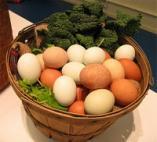
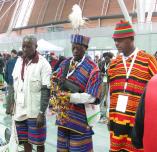
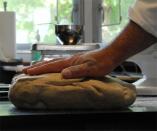
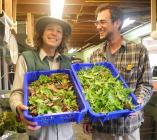

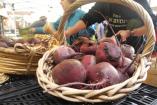
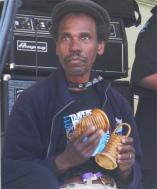
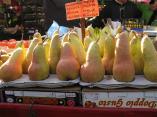
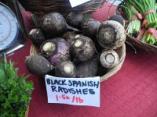


2 Responses to Terra Madre: Sustainable education